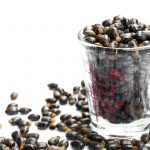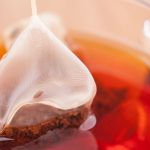The Psychoactive Blocking Effect of CBD
Node Smith, ND
Researchers at Western University have shown for the first time the molecular mechanisms at work that cause cannabidiol, or CBD, to block the psychiatric side-effects caused by tetrahydrocannabinol (THC), the main psychoactive chemical in cannabis.
Researchers have shown for the first time the molecular mechanisms at work that cause CBD to block the psychiatric side-effects caused by THC
It has been previously shown that strains of cannabis with high levels of THC and low levels of CBD can cause increased psychiatric effects, including paranoia, anxiety and addictive-behaviors, but why that was occurring was not fully understood.
Steven Laviolette, PhD, and his research team used rats to investigate the role of a molecule in the brain’s hippocampus called extracellular-signal regulated kinase (ERK) which triggers the neuropsychiatric effects of THC.
For years we have known that strains of cannabis high in THC and low in CBD were more likely to cause psychiatric side-effects. Our findings identify for the first time the molecular mechanisms by which CBD may actually block these THC-related side-effects,” said Steven Laviolette, professor, Western’s Schulich School of Medicine & Dentistry
THC had higher levels of activated ERK, showed more anxiety behaviors and more sensitive to fear-based learning
The research, published in the Journal of Neuroscience demonstrates that rats that were given THC had higher levels of activated ERK, showed more anxiety behaviors and were more sensitive to fear-based learning. Rats that were given both CBD and THC acted like the control rats: they had normal levels of activated ERK, less anxiety behaviors, and were less sensitive to fear-based learning.
Findings
Based on these results, the research team proposes that CBD blocks the ability of THC to overstimulate the ERK pathway in the hippocampus and thus prevent its negative side-effects.
“Our findings have important implications for prescribing cannabis and long-term cannabis use. For example, for individuals more prone to cannabis-related side-effects, it is critical to limit use to strains with high CBD and low THC content,” said Laviolette. “More importantly, this discovery opens up a new molecular frontier for developing more effective and safer THC formulations.”
PhD Candidate and Vanier Scholar Roger Hudson, lead author on the study, says another interesting finding was that CBD alone had no effect on the ERK pathway. “CBD by itself had no effect,” he said. “However, by co-administering CBD and THC, we completely reversed the direction of the change on a molecular level. CBD was also able to reverse the anxiety-like behaviour and addictive-like behaviour caused by the THC.”
Research team will examine ways to formulate THC with fewer side effects to improve efficacy of CBD-derived therapies
Laviolette says they will be following up these studies by continuing to identify the specific features of this molecular mechanism. The research team will examine ways to formulate THC with fewer side effects and to improve the efficacy of CBD-derived therapies.
Source:
- Hudson, R. et al. (2019) Cannabidiol Counteracts the Psychotropic Side-Effects of Δ-9-Tetrahydrocannabinol in the Ventral Hippocampus Through Bi-Directional Control of ERK1-2 Phosphorylation. Journal of Neuroscience. doi.org/10.1523/JNEUROSCI.0708-19.2019.
 Node Smith, ND, is a naturopathic physician in Humboldt, Saskatchewan and associate editor and continuing education director for NDNR. His mission is serving relationships that support the process of transformation, and that ultimately lead to healthier people, businesses and communities. His primary therapeutic tools include counselling, homeopathy, diet and the use of cold water combined with exercise. Node considers health to be a reflection of the relationships a person or a business has with themselves, with God and with those around them. In order to cure disease and to heal, these relationships must be specifically considered. Node has worked intimately with many groups and organizations within the naturopathic profession, and helped found the non-profit, Association for Naturopathic Revitalization (ANR), which works to promote and facilitate experiential education in vitalism.
Node Smith, ND, is a naturopathic physician in Humboldt, Saskatchewan and associate editor and continuing education director for NDNR. His mission is serving relationships that support the process of transformation, and that ultimately lead to healthier people, businesses and communities. His primary therapeutic tools include counselling, homeopathy, diet and the use of cold water combined with exercise. Node considers health to be a reflection of the relationships a person or a business has with themselves, with God and with those around them. In order to cure disease and to heal, these relationships must be specifically considered. Node has worked intimately with many groups and organizations within the naturopathic profession, and helped found the non-profit, Association for Naturopathic Revitalization (ANR), which works to promote and facilitate experiential education in vitalism.










